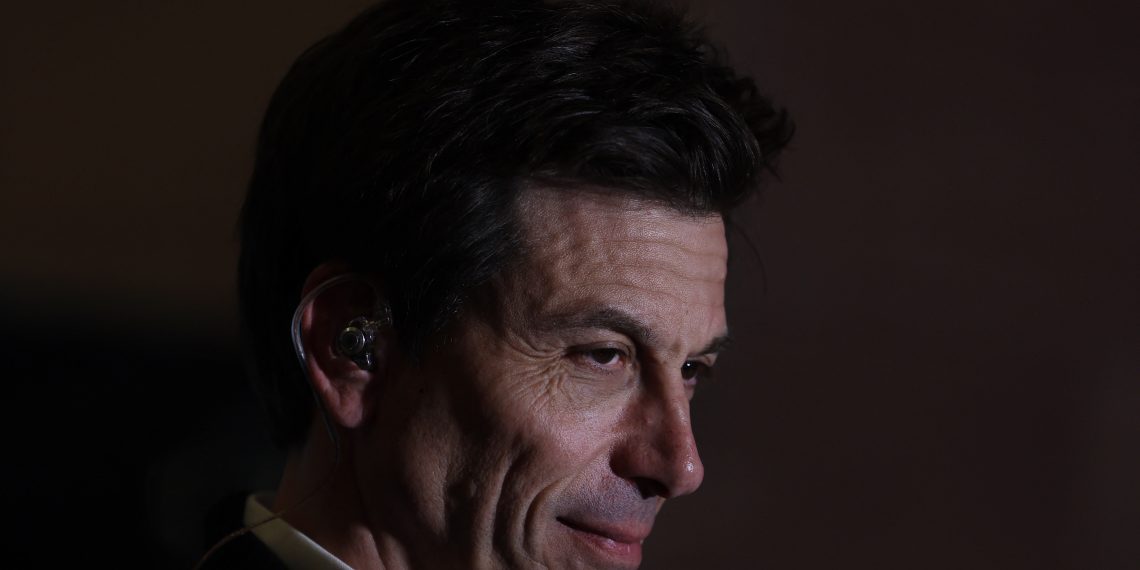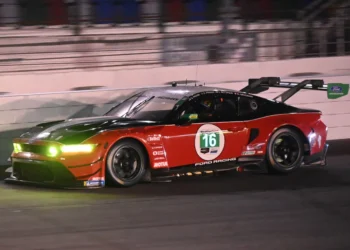Toto Wolff has never shied away from the big debates in Formula 1, and now he’s backing one of the FIA’s most controversial initiatives—a crackdown on driver swearing.
With the governing body ramping up penalties for inappropriate language, F1 is stepping into new territory, enforcing stricter conduct rules in press conferences, public appearances, and even in heated moments over the team radio. Wolff’s endorsement of this initiative aligns Mercedes with the FIA’s push for professionalism, but it has also sparked outrage among drivers and fans who believe the sport’s raw passion is at risk.
Redefining ‘Passion’ in F1: Wolff Says Swearing Has Consequences
Formula 1 has always thrived on emotion, intensity, and unscripted drama. From Ayrton Senna’s fierce declarations to Kimi Räikkönen’s no-nonsense radio messages, fans have embraced the unfiltered personalities of their favorite drivers. But according to Wolff, there’s a line that needs to be drawn.
“Building our own engine is a challenge that cannot be underestimated, but so is maintaining professionalism in F1,” Wolff said at a recent event, doubling down on his support for the FIA’s move to regulate driver language.
His comments reflect a growing concern that swearing, particularly in live broadcasts, affects Formula 1’s younger audience and its image as a global sport.
“Drivers are role models,” Wolff emphasized. “We have a responsibility to ensure that our sport remains respectful and inspiring for the next generation.”
Max Verstappen and the Driver Rebellion: “This is Going Too Far”
While Wolff sees censorship as necessary for professionalism, not all drivers agree. Max Verstappen, in particular, has been vocal about his frustration with the new penalties, having already faced scrutiny for his language in interviews.
The reigning world champion has made it clear that he believes Formula 1 should allow drivers to express themselves authentically without fear of being penalized for emotions that naturally flare up in a high-pressure environment.
“I don’t want to fake my emotions just because someone thinks it’s not ‘family-friendly,’” Verstappen said in response to the crackdown. “We’re racing at 200 mph, risking everything. If you expect us to talk like we’re at a business meeting, this sport is going in the wrong direction.”
His frustration is shared by several drivers, who worry that overregulation could sanitize the sport, stripping away the very raw energy that makes F1 captivating.
FIA’s Growing Influence: Policing Language or Protecting the Sport?
The FIA’s latest move signals a broader cultural shift within Formula 1. What started as restrictions on team radio messages and political statements has now expanded to how drivers express themselves in the heat of the moment.
The penalties for swearing will reportedly escalate, with fines, race-weekend penalties, and even potential points deductions being discussed for repeat offenders. Is this about maintaining professionalism, or is the FIA overstepping its boundaries?
For fans, the debate is polarizing.
- Some argue that F1 should uphold certain standards, ensuring that its broadcasts remain suitable for all audiences.
- Others believe that attempting to control driver emotions in this way is unrealistic and unnecessary.
Even Wolff has acknowledged that cultural differences play a role in how certain words are interpreted, adding complexity to the enforcement of these rules.
“British drivers might not fully understand the impact of certain words in other cultures,” he noted, suggesting that education on language sensitivities might be just as important as penalties.
The Future of F1’s Driver Conduct: A Balancing Act
As Formula 1 moves further into the modern era, the sport faces a critical balancing act:
- How does it maintain its intensity while also preserving a professional image?
- At what point does regulation cross into over-policing?
- Can drivers be expected to filter their emotions in high-stakes moments?
While Wolff and the FIA push for stricter standards, Verstappen and other drivers continue to push back, arguing that the spirit of competition should not be dulled by corporate-friendly speech regulations.
For now, the FIA’s stance is clear: the days of F1 drivers unleashing fiery, uncensored outbursts without consequences are numbered. Whether fans and drivers accept that shift—or rebel against it—remains to be seen.










